Healthy habits help us grow.
Although human tendency often propels us to be creatures of habit, for better or for worse, we also have equal capacity for agency. This means we have the power to make choices about our lives and the habits we form. We can choose to habituate spiritual practices that help us come wholly alive and thrive, and they don’t have to take much time. A practice can be as simple as intentionally taking someone else’s perspective. Essential to spiritual health is adopting practices and rhythms that allow us to regulate our attention, emotions, thoughts, behaviors, and to set goals. We need practices that help us connect more deeply with ourselves, others, and God. It’s crucial that we take in sacred texts and instruction from wise sources, but also that we include practices that prompt us to reflect on our lives and increase our awareness of who we are and what matters to us. Good practices help us make sense of and become more resilient to the inevitable suffering in life, while also growing our capacity to show love.
A curated content list
Discover more about habits and rhythms
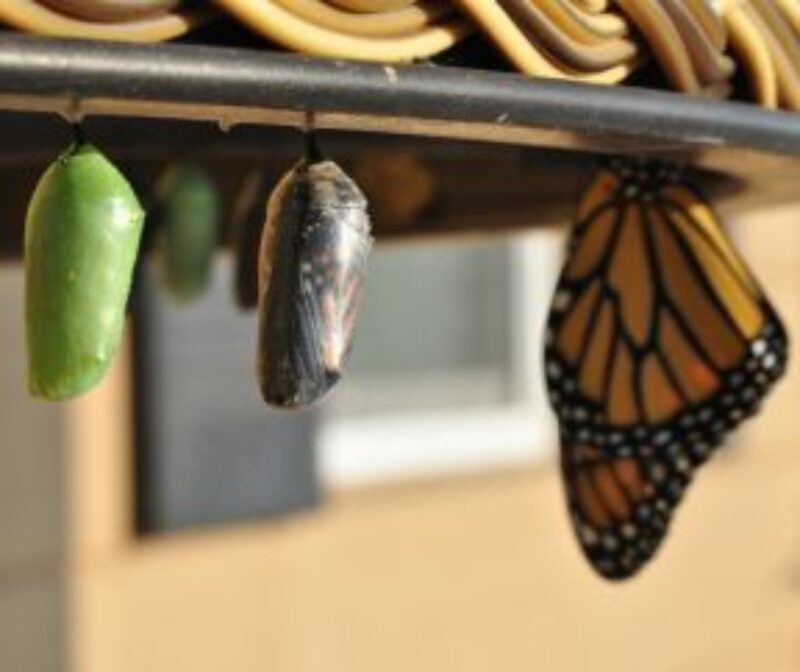
Patience: The Missing Link in Your New Year’s Resolutions
Most people don't achieve their New Year's resolutions. Here's how to approach your goals in a new way to sustain your journey.
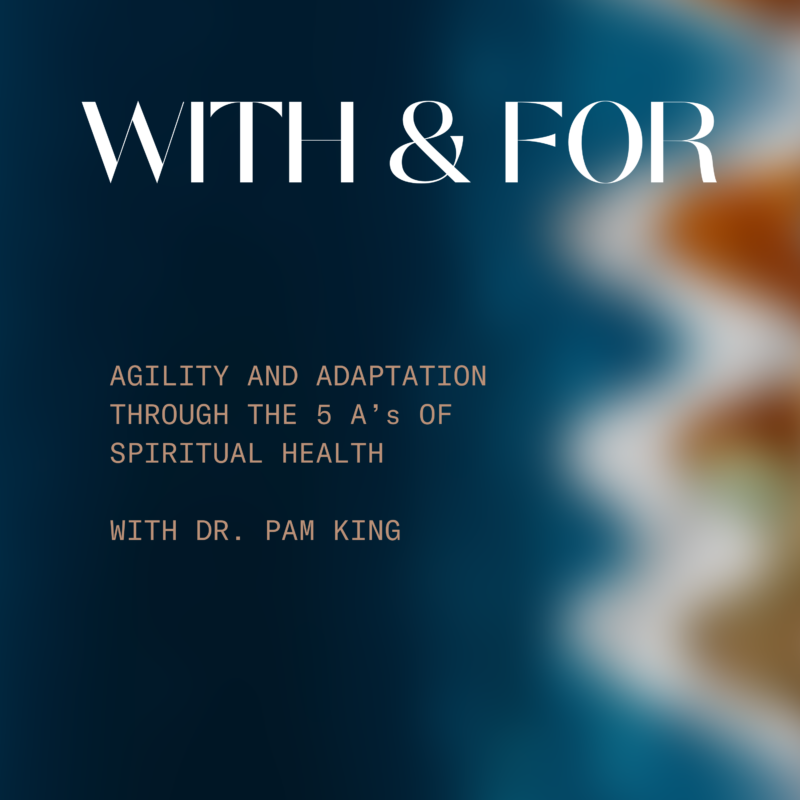
Agility and Adaptation through the 5 A’s of Spiritual Health
How can we cultivate agility and adaptivity in our chaotic, shifting times? Dr. Pam King offers a research-backed cycle of practices to incorporate into the rhythms of your daily life—helping you navigate change and work through life’s obstacles. She calls them the 5 A’s of Spiritual Health: Attunement, Awareness, Alignment, Activation, and Assessment.

What is the Advent season?
What is the advent season all about? We’ll tell you all about the history, when it starts, and how it’s celebrated.

Fourth Sunday of Advent: Love
The fourth Sunday of Advent represents love. Discover the history, relevant scripture, and how it fits into the Advent season.

Third Sunday of Advent: Joy
The third Sunday of Advent represents joy. Discover the history, relevant scripture, and how it fits into the Advent season.

Second Sunday of Advent: Peace
The second Sunday of Advent represents peace. Discover the history, relevant scripture, and how it fits into the Advent season.

First Sunday of Advent: Hope
The first Sunday of Advent represents hope. Discover the history, relevant scripture, and how it fits into the Advent season.

Hacking our Habits
Changing a habit takes time and practice. Here's how to get started. Your moment by moment choices form the person you are becoming.

Creating a Joy Habit with the 5 As of Agility
Joy is something you can habituate through practice. Pay attention to joy in your body and emotions, then activate into your purposes.

Rhythms and Rest (Part 2)
How do rituals around rest help us to regulate? What does it mean to co-regulate? Why might rest be necessary for our spirituality?

Rhythms and Rest (Part 1)
Why do we need spiritual practices like Sabbath? Is it enough to just rest? This 2-Part series answers these questions and more.

Assess: Are you living your values?
A practice of Introspection, assessing how the day went, can be a valuable tool for understanding where you want to go.

Play is not a privilege, it’s a primal need
Americans spend a big part of their free time watching TV. You might need a different kind of play for wellbeing and spiritual health.

Why You Need to Make Time for Play
You might be surprised about the benefits of play for your wellbeing and your spiritual health. Here's how to get more in your life.

How Can Savoring Improve Your Quality of Life?
Can we increase our feelings of happiness simply by noticing when we are happy? Research tells us we can through the practice of savoring.

Screen Time: How Much Do We Pay for Our Screen Time Subscriptions?
What are the real costs of our screen time? How can you become more mindful for yourself and your children? Writer, Amy Dunn, explores this question and more in this series.

Screen Time: Here’s What Happened When I Took my Kids’ Screens
Writer Amy Dunn tells us that taking screens away marked her. "I watched my kids immediately become completely lost in their own imaginations for not just minutes, but hours and hours."

A Practice: Small Acts of Love—An invitation to create and explore
Is it possible to create a more loving world? Practices that link us to our senses support our ability to love.
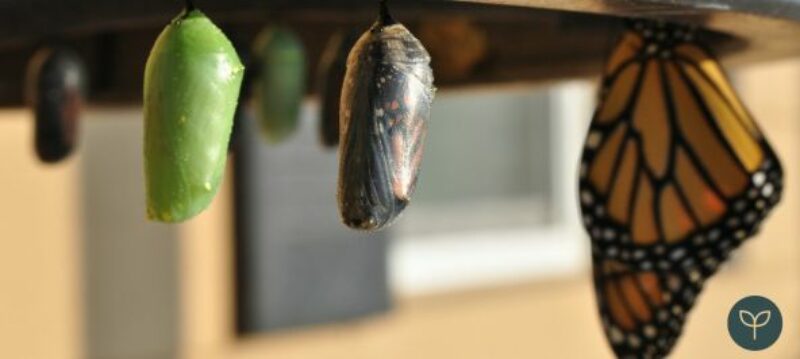
Why Can’t I Change? How Flexibility Might Be the Key to Getting Unstuck (Part 2)
We can thrive by flexibly facing change, rather than avoiding it. This post is Part 2 of a two-part series.

Why Can’t I Change? How Flexibility Might Be the Key to Getting Unstuck (Part 1)
We can thrive by flexibly facing change, rather than avoiding it. This post is Part 1 of a two-part series.

A Practice: Shift Your Inner Critic to an Inner Nurturer
Here's how to shift your inner critic to the inner nurturer by teaching your body that you can also find strength in being tender with yourself.

A Practice: Values-Based Living
Identifying your values to figure out how you would like to show up in pursuit of what matters most to you
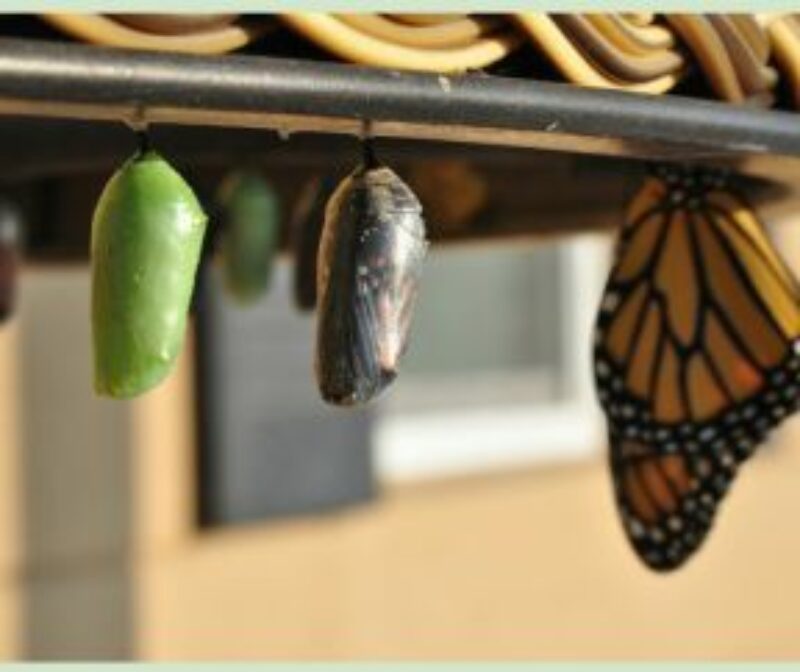
Change is Challenging: How Psychological Flexibility Can Make Change Your Ally
Change is inevitable, but can be challenging. A practice of psychological flexibility - becoming open, centered, and engaged - can help us grow our lives toward what matters most.

Pursuing Goals: The Castle, the Estate, and The Long Walk
Guest blogger, Amy Dunn, reflects on being present in the day to day of our lives as we pursue goals and purpose. The journey is where we live, even as we keep our eye on a telos.

Practice Makes Patience
Patience is an important virtue to develop to achieve goals, including relationship goals. Here are some ideas to explore if you are feeling impatient.

Dropping Anchor: How Can We Stay Steady During Change?
What support systems buoy us on our journeys? Blogger, Amy Dunn, offers some ideas and practices to keep us steady during times of change and transition.

A Practice: Lamenting with Movement
Lament is a constructive way to embrace suffering. It aligns our emotions and beliefs, and invites us to action.

A Practice: Reflecting on Love and Goodness Towards Others
This practice helps build compassion for the struggles of others by shifting our perspective and imagining how we can offer love.

Well-Being: Four Essential Pillars Backed by Science
Research has identified four aspects of the mind that exhibit plasticity, and it turns out that we can practice to make our minds healthier.

A Radical Idea: Becoming Skilled in Our Own Well-being
Wellbeing is something we can actively cultivate through practice, or through a practice of "mental hygiene."

We Really Can’t Do it All: Destigmatizing Human Limitations to Reclaim Joy
Reclaim joy through examining the rhythms of your life. A series of questions will help you explore.

Micro-dosing Rest to Avoid Burnout
How do we create regular rhythms between work and rest?

Burnout Culture: Is it Possible to Rest and Achieve?
How do we address the problem of burnout in our modern society?

A Practice: 5 As of Agility Worksheet
Download this worksheet and work through the practices. We recommend working with a friend and discussing your answers.

Do your Habits Promote Growth and Support your Purpose?
Healthy practices help us live into our values, reflect on our choices, and connect us with others and God.

Want more Love and Goodness? Savor Gratitude
Gratitude is one of the most powerful ways to attend to goodness. The goodness of gifts, the goodness of givers, and the goodness of ourselves as receivers.

Take a Breath: How Breath Work Provides a Portal to Our Spiritual Lives
Paying attention to the pattern of our breath is a spiritual practice with power to gain insight into meaning and change our lives.

Do you have practices to support healthy spirituality?
Nurturing our spiritual health involves times of reflection and connection to our body, mind, and emotions.

A Practice Questions to Promote Love, Meaning and Purpose
Pivot from anxiety to meaning to discover yourself and your purposes. Find a trusted friend or small group and work through these questions.

A Practice: Observing the Body for Understanding
A daily spiritual practice focusing on embodied emotions provides insight into what matters most and informs purpose.

Want to become more present, healthy, and connected? Pay attention to your body (Part 2)
Our emotions are linked to how we make meaning of our lives, and attending to our embodied emotional selves leads to spiritual health.

Want to become more present, healthy, and connected? Pay attention to your body (Part 1)
Thrive Fellow, Lauren Van Vranken, offers practices for reconnecting to our bodies and asks us to think about our relationship to our embodied selves.

The Power of Pausing in Gratitude
Gratitude affect happiness and wellbeing primarily through positive relationships. We finding that beliefs matters toward experiences and practices of gratitude.

A Practice: Using the 5 A’s to Slow down and Offer Thanks
Practicing gratitude can change your life. Use the 5 As mindfulness practice to offer thanks and live into a practice of gratitude.

A Practice: How might we access the transcendent?
Accessing the transcendent can be pursued with tangible practices.

A Practice in Emotional Regulation: Tending to our Inner Selves
Practice attention and emotion regulation using the following.

Thriving through Trauma: Five R’s for Resilience and Recovery
Dr. Cynthia Eriksson offers a 5-tier framework for recovery from trauma and offers practices for regulation and reflection.

A Practice: The Five A’s for Agility in the Face of Change
Finding joy requires practice. Learn how you can be agile and experience more joy in your daily life through our 5-step process.

A Practice: The Five R’s of Resilience and Recovery
Cynthia Eriksson's psychological and theological framework points to 5 self-care practices to developing resilience and recovery.

Growing Through Hardship: Practices for Resilience and Purpose
How do we build resilience and stay connected to purpose in the midst of suffering? Lauren Van Vranken shares 3 practices.
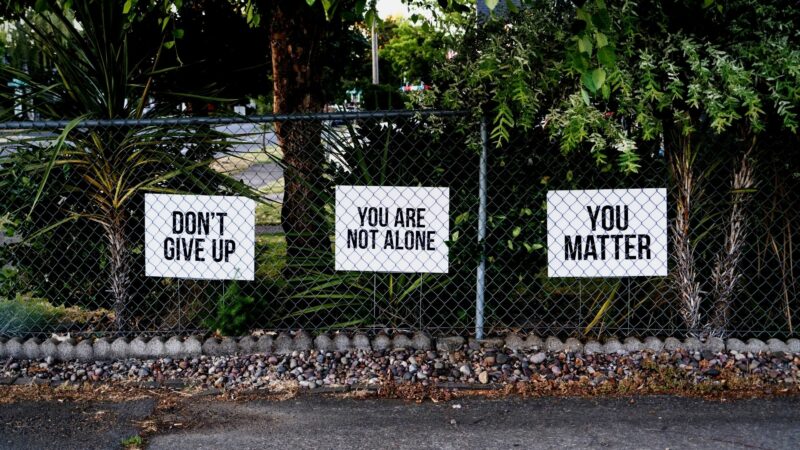
Strength Training for Thriving: How to Build our Mental Health Muscles
As mental health awareness grows, Pamela King reflects on the tools we need to live coherent, purposeful lives.

A Practice: The Five B’s of Thriving by Accessing God’s Love
Our research-based framework highlights the 5 modes in which we can actively develop and strengthen your thriving "muscles."

New Rhythms: How Can I Grow my Daily Spiritual Practices?
Dr. Pamela King invites us to find daily spiritual practices that will draw us closer to ourselves, others and God.

Slowing Down and Thriving This Advent
Dr. Pamela King highlights the importance of pacing during the holidays, offering self-awareness practices to refocus on what matters most.

The Church and Trauma in Times of the Pandemic (A Workshop for Clergy and Faith Leaders)
Summary The COVID-19 pandemic has caused extraordinary emotional turmoil and stress in the United States and globally. As first responders in crises, clergy and faith leaders have to contend with increasing grief and trauma reactions in their faith communities. Faith leaders must understand and recognize trauma, and its multidimensional impact in times such as these. This webinar provided practical and faith-based tips to reduce stress and promote resilience and trauma healing in the clergy and their faith communities. Psychologists, Lisseth Rojas-Flore and Joseph Currier and theologian, Tommy Givens also address critical theological insights in responses to trauma and recovery. Additional Resources When Your Whole World Changes, COVID-19 Special Ed.—Downloadable devotions and resources by Biblica (also available in 30 languages). COVID-19, ICE, and the Betrayal of Latino Children—Article by Lisseth Rojas-Flores on FULLER Studio.

Mindful Parenting During COVID-19
Summary Parenting can be challenging and stressful, especially during an ongoing pandemic. Mindfulness experts and clinical psychologists, Joey Fung and Patricia Broderick discuss how parents and caregivers can practice mindful parenting at home. In this webinar, you will learn: (1) how to manage stress and anxiety related to parenting, (2) ways to address emotional exhaustion and caregiver fatigue, (3) how to model and practice mindfulness in the family, and (4) how to practice self-compassion as a method for self-care. Additional Resources Guide to Applying Mindful Parenting Based on webinar, Joey Fung outlines ways parents and caregivers can integrate mindful parenting practices to their daily lives, as well as how they can cultivate self-compassion and gratitude. How to Practice Mindful Breathing Patricia Broderick shares a step-by-step guide on how parents and caregivers can practice mindful breathing and self-compassion…

A Practice: 4-Step Mindful Breathing Exercise
Practicing mindful breathing can help us pause, check in with our bodies, manage our emotions, and redirect our attention.

Tips for Thriving Through Unpredictable Times
Move from surviving to thriving by using the six tips in this post. Explore the links for deeper understanding.

Dad Jokes: Science Agrees we Need More Laughter
Research shows that humor can ease stress during hard times. Dr. Susan Mangan shares 3 evidence-based practices to help us get started.

A Practice: The Five A’s of Agility
Part of our journey towards thriving involves agility. Pamela King explains how we can be agile through a 5-step process.

Resiliency Part 1: Bending not Breaking During Hard Times
Dr. Pam King shares 8 tips on how to simplify and thrive during challenging times.

Resiliency Part 2: Thriving for the Long Haul
Dr. Pamela King reviews the elements of a thriving mindset, providing tips on how to pursue purpose and agility.

Kids and Anxious Minds (Part 2): Practices to Help Kids Cope During Times of Anxiety
Student researchers share 3 research-based techniques to increase relaxation, support positive behaviors, and create a structured routine for kids.

Kids and Anxious Minds (Part 1): How Parents Can Support Children Struggling with Anxiety
Student researchers recommend 3 evidence-based interventions that parents can use to help regulate kids' stress and emotions at home.

It’s Okay to Let Your Child be Bored This Summer
Written during the Summer of 2020, this post maintains wisdom for parents about the importance of unstructured time and play.

Mindful Parenting: The Importance of Creating Space from Within
Dr. Joey Fung emphasizes the importance of mindful parenting and how parents can thrive during this pandemic.

Six Tips for Managing Emotions in Times of Uncertainty
Pamela King offers 6 tips on how to manage and reflect on our emotions as we face moments of loss, pain, and grief.

Grief and Mindfulness: How to Manage Your Emotions
Dr. Joey Fung discusses the myths of grief, offering 3 ways mindfulness can help us manage our emotions during times of grief.

Staying Grounded, Connected, and Directed
Dr. Pam King discusses how spirituality can help us stay grounded, connected, and directed throughout difficult challenges.

Mindfulness: The Importance of Checking In with Your Body
Dr. Joey Fung shares 5 mindfulness practices to help us check in with our bodies to manage anxiety during times of transition and difficulty.

A Practice: Embracing Self-Compassion During Times of Grief
Guest blogger, Stephanie Trudeau talks collective loss and how we can approach our feelings with compassion and grace.

Activities for Busting the Blues
Dr. Susan Mangan shares activities that help build resilience and beat the blues.

Protecting Our Spiritual Health
Guest blogger, Dr. Angela Gorrell emphasizes the importance of nurturing our spiritual health in order to thrive during difficult times.

Mindful Parenting Practices for Stressful Times
We share 4 mindful parenting practices to help parents become more engaged and less stressed when interacting with teens.

Practices to Boost Positive Emotions at Home
Dr. Susan Mangan provides 3 at-home exercises that can increase our positive emotions during times of difficulty.

Changing Our Focus from Surviving to Thriving
Dr. Pamela King reflects on the importance of contemplative practices as the key to thriving during difficulty.

Aspire to Inspire: Learning the Mamba Mentality for Every Day Greatness
Dr. Stephanie Trudeau breaks down the Mamba Mentality framework and offers tips for how to integrate it into our own lives.

Inspiring Kids to Adopt a Posture of Gratitude
What does research tell us about gratitude? Explore the key benefits of gratitude and how you can nurture it in kids.

Top Apps for Thriving
When used properly, technology can help us thrive. Our research team shares the 9 apps that can boost relationships, beliefs, and purpose.

Spiritual Practices
Summary Pamela Ebstyne King, executive of the Thrive Center, shares a variety of practices that have helped her spiritual life, including Ignatian spiritual exercises, silence, and carefully reflecting on achievable goals. Author’s Note This interview was originally published on FULLER Studio. About the Author Pamela Ebstyne King Pamela Ebstyne King is the executive director of the Thrive Center and serves as the Peter L. Benson Professor of Applied Developmental Science at Fuller Theological Seminary. Her primary academic interests are applied research at the intersection of human thriving and spiritual development. Dr. King’s work combines theology, empirical research, and community engagement to further understand what contexts and settings enable all people to thrive.

What My Parents Did Right (When It Came to Sports)
A student researcher shares the integral role his parents played in fostering positive youth development through sports.

The 10 Commandments of Coaching
Learn about the 10 research-backed techniques coaches can adopt to positively influence a young athlete's development.
83 Content Resources

Do your habits promote growth and support your purpose?
Healthy practices help us live into our values, reflect on our choices, and connect us with others and God.
Dive Further

Ethics & Virtues
Our beliefs about love and how we live out love through values, views of right and wrong, and cultivating virtuous habits.

Vocation & Purpose
Contributing our strengths to the world by living out our response to love.

Identity & Narrative
Growing in clarity about who we are as a beloved, unique, embodied person and how we are related to others and the greater world.
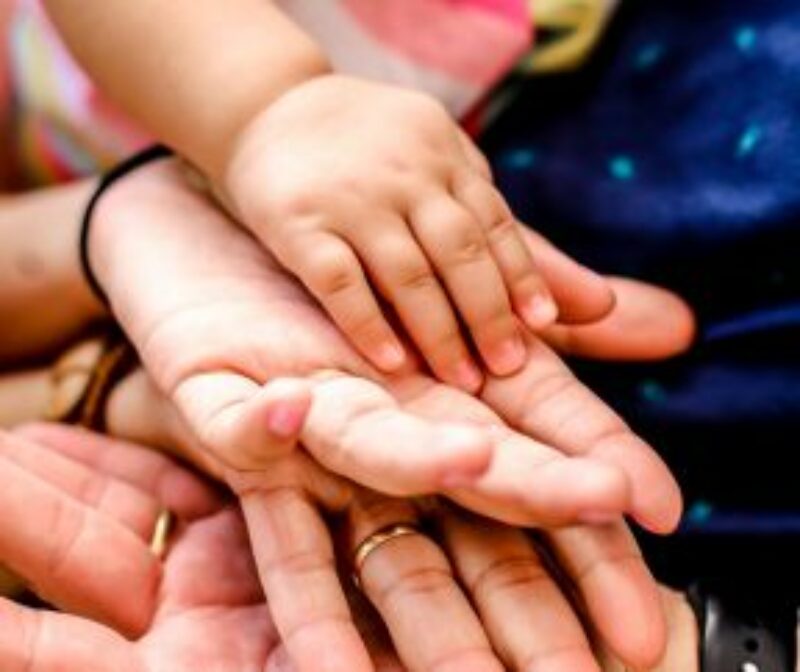
Relationships & Community
Connections provide a space of belonging where we can be fully known to ourselves and others and learn to give and receive love.

Transcendence & Spirituality
Awareness of and connection to a source of invigorating love offers meaning and inspires purpose. For many this is God, for others it may be a higher power or nature.
Subscribe to our newsletter and get our Thrive Practices for Spiritual Health PDF!
You Got It!